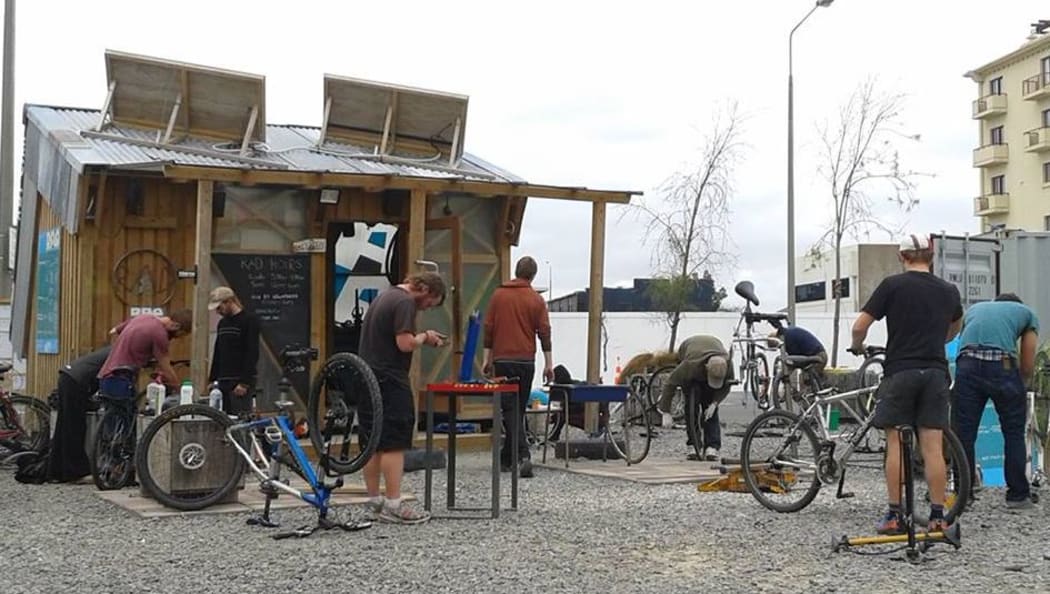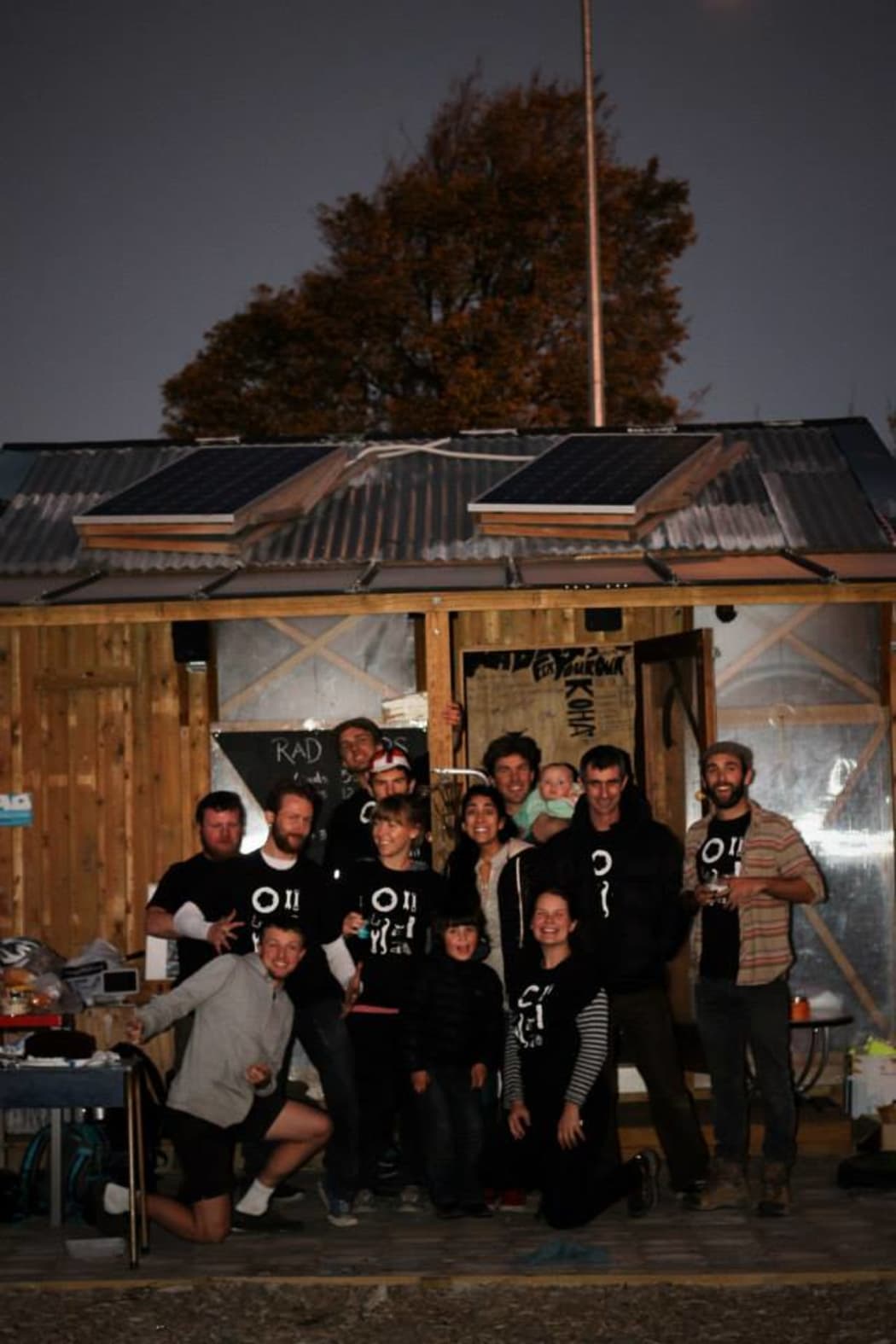Five years into the rebuilding of Christchurch, in our Shake Up series we talk about the legacy of the earthquakes with some of the people making the city a better place.

The R.A.D Bikes workshop Photo: Supplied
R.A.D Bikes is a volunteer group of passionate two-wheeler bandits who want to help other fellow Cantabrians on their bikes. R.A.D stands for Recycle A Dunger and it was set up in 2013 in a shed to help people maintain and care for their bikes with a focus on recycling, even giving away bikes to those in need.
Richard Sewell talks about the project which has taken on a life of its own since it began.
Where were you when the earthquake struck?
The house we were living in came down. My partner was in an archway, which the rest of the house fell down around. It was pretty freaky.
We were staying in peoples garages and at that stage we decided we were being an extra drain on the city so we moved to Wellington for a year. After a year we moved back we decided there was so much opportunity to shape Christchurch.
What is R.A.D bikes?
It’s an open bike workshop. Twice a week people can come in use the tools, get parts, and get the expertise. We help people help themselves and encourage people to help each other. Our volunteers build up bikes each week and give them away to people who need them.
How did R.A.D bikes start?
I’ve been involved in sort of like bike kitchens in Wellington, there are bike kitchens around the world. I’ve always found it bizarre that Christchurch didn’t have one. When I was back and working with community projects I guess I always knew I wanted to be a part of at least trying it in Christchurch.
Working with Gap Filler, we started it up. We built a shed and through that we build a community and it’s still going and kicking ass!
What’s one of the most memorable moments you’ve had with R.A.D?
We work with many organisations such as Christchurch District Health Board, Pathways, Emerge, Bikes for Madagascar, and Women’s Refuge. We’ve had heaps of times we’ve heard about people who weren’t able to work who now can because they have a bike.

Nicholas Sewell, Chris Andrews, Richard Barnacle, Hunter Sewell, Kieran Walter, Adam Kest, Rachel Cope, Catarina Gutierrez, Peter Thornton, Oliver McLaren, Isaac Spedding, Leeroy Thornton and Jess Smale. Photo: Supplied
One very grateful recipient of a R.A.D bike was a deported Kiwi from Australia, dumped back in NZ with no family and no support except his Corrections caseworker. He was just rapt to have some transport and it made his Christmas a little less dire.
Would R.A.D bikes exist if it weren’t for the earthquake?
No, not really. There are other organisations in Christchurch that do similar things but they don’t have the visibility or accessibility that we have.
We built our little shed, and we keep on moving it around the city. This is our 4th site now – at different sites we get a new audience and new volunteers.
We gain a lot from that, rather than being tucked away in a cheap warehouse somewhere.
How has R.A.D bikes evolved?
We’ve got stronger, we’ve become more sustainable. At the start it was reliant on a small number of people with energy, now there are lots of supporters and people. At the start I was one of the core volunteers and I love tinkering with bikes but my bike knowledge is only so much and now we have people that are incredibly knowledgeable.
We upskill the volunteers as well. We’re getting better at what we do.
Have you lost any opportunities through the quakes?
No, I wouldn’t look at it like that. I feel like I’ve gained so many opportunities from the quakes. I wouldn’t be living in Christchurch if it weren’t for the quake. Yeah, I think it has been net gain for me!
What’s the future of R.A.D Bikes?
I hope it can keep growing. I always see it as a central city thing. For me, central city is everybody’s space where everyone can come together and rub shoulders.
We’ve only got so much reach where we are so I’d like to think we could help other communities to build their own bike workshops.

